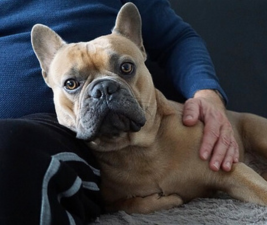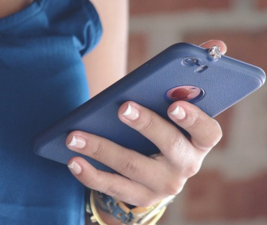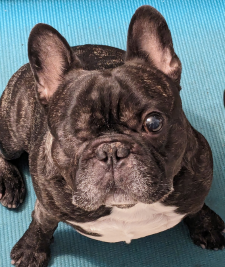Resource guarding is a big deal. But most people’s first instinct on what to do about it is exactly the opposite of the answer. If you take away the resource the dog is guarding, the dog’s fears come true. It doesn’t solve the problem. It convinces the dog it was right.
This week we saw some advice on a dog training social media group that made us cringe. Somebody was asking what to do about their little Shih Tzu who was suddenly “guarding” her from other people in the family. Even growling when their family’s toddler child ran into their bedroom and approached the bed. The dog apparently even snapped and lunged at the child. The woman was asking what to do.
That’s not the bad part. The bad part is the advice some old-school people were giving. Comment after comment saying “Don’t let the dog on the bed until it learns better.”
That’s absolutely the worst way to address the situation. And luckily, someone else pointed it out before we had the opportunity. If you take away the “resource” the dog is guarding, the dog’s worst fears come true. They have even more reason to protect what they think is theirs!
Times have changed
People used to use the adage “let sleeping dogs lie.” It’s no longer used, because society seems to have decided that dogs can’t object to harassment. Apparently dogs can’t object to anything being taken away from them, or done to them.
We don’t think that’s right. And it’s certainly not fair. But it’s all over, including supposedly “cute” videos showing toddlers climbing on dogs, getting in dogs’ faces, even playing with their flews. The dogs in many videos are giving clear signs they’re not comfortable, and yet people are shocked when dogs finally react.
Most dogs give signals when they’re not happy in a situation. They’ll look sideways, or their eyes will get large (whale eye). Licking their lips is also a sign of discomfort, as is turning their head away. Pushed further, most dogs may curl a lip, or emit a warning growl.
If you see any of these dog signals, it’s time to stop whatever it is that’s happening. When people persist despite the dog’s indicators, that’s when bad things can happen. And good dogs can be labeled aggressive, or reactive.
What’s the answer?
For resource guarding, the person’s first instinct is to take away whatever it is that triggers the dog’s possessiveness. Which convinces the dog they were right – that precious object/person/food is under threat.
A teaching approach changes the dynamic. Instead of taking away the food bowl, drop more food in it as you go by. Rather than ban the dog from the person’s lap, give the dog incredibly yummy treats as you approach. Instead of removing the dog from the bed, designate a special place (blanket/mat) on the bed where they’re always safe.
Children should be taught to respect dogs, including their best friend, the family dog. Everybody, including the dog, should be allowed to have limits. Watching and learning to read a dog’s body language can go a long way to solving many dog issues.
Enjoyed this post? Click here to sign up for the weekly newsletter and never miss another!


















